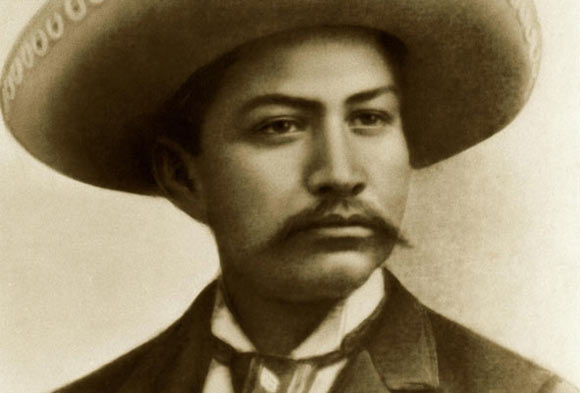
Juventino Rosas was a Mexican Composer and Violinist most known for his emphatic Mazurcas and Polkas.
José Juventino Policarpo Rosas Cadenas was born on January 25, 1868 in Santa Cruz, Guanajuato. In 1939, his hometown district would be renamed to “Santa Cruz de Juventino Rosas” in his honor. Rosas earned a living as a street musician in his hometown neighborhood, and often, he would venture out into Mexico City, sometimes coupling with Mexican Dance Music Bands while other times he would only play solo. During his early years, he even played for the internationally acclaimed Ángela Peralta.
Rosas came from a poor family and he often turned to his music to help make ends meets. As a little boy, he was often spotted playing the violin near his home, amassing whatever change he could. A famous anecdote dictates that at age twelve, he once wrote a composed a piece of Waltz in exchange for a pair of shoes.
Rosas obvious musical talent was very hard to miss, and even as a street musician, he earned enough to enroll at the Conservatorio Nacional de Musica Mexico. Rosas, despite doing fairly well at the Conservatory, abandoned it in 1885. He enrolled again in 1888, only to leave it again, thus, Rosas, despite being trained in music, did not have a diploma. Nonetheless, a mere diploma was never going to stand in the way of Rosas’s career. In 1888, the same year in which Rosas left the Conservatory for the second time, Rosas released his waltz composition “Sobre Las Olas” (Over the Waves”) through Wagner y Lavien and Nagel Suceros. “Sobre Las Olas” soon became his most popular work. It first found its way into the United States, where it made significant headway in New Orleans Jazz and Bluegrass Music. It then became a Tejano (Texan-American) favorite, and it would often be played at concert gatherings. “Sobre Las Olas” is now the work of choice for American Country and Trapeze Artists. The work was also featured in the movie “The Great Caruso”, for which Ann Blyth sung “The Loveliest Night of The Year” (the song which featured the tune).
Most critics were aghast by the musical technicality of “Sobre Las Olas”, in fact, the work was so well-written that it was once mistakenly included in European Composer Johann Strauss’s Repertoire, and since the work was so outstanding, the mistake went unnoticed for quite a long time.
Rosas’s other works from 1888 included the polka “La Cantinera”, the Mazurcas “Acuerdate”, “Lejos de ti”, and the Schottishes “El sueno de las flores”, “Floricultura-Schottisch”, and “Lazos de Amor”. Rosas also wrote almost all of his Danzas in 1888, these included “A Lupe”, “En el Casino”, “Juanita”, “No me acuerdo”, and “Flores de Romana” amongst others.
Other works from Rosas that were published by Wagner y Levien and Friedrich Hofmeister included “Carmela” from 1890, “Ojos Negros” from 1891, “Flores de Mexico” from 1893, “Julia” from 1890, “Salud y pesetas” from 1890, and “Que Bueno” from 1888.
Rosas has the reputation of being one of the first internationally acclaimed Mexican Artists. He is also one of the most recorded Mexican Artists of all time. Juventino Rosas died on January 25, 1894 at Surgidero de Batabano, Cuba, at the young age of twenty six. His remains were later handed over to Mexico.